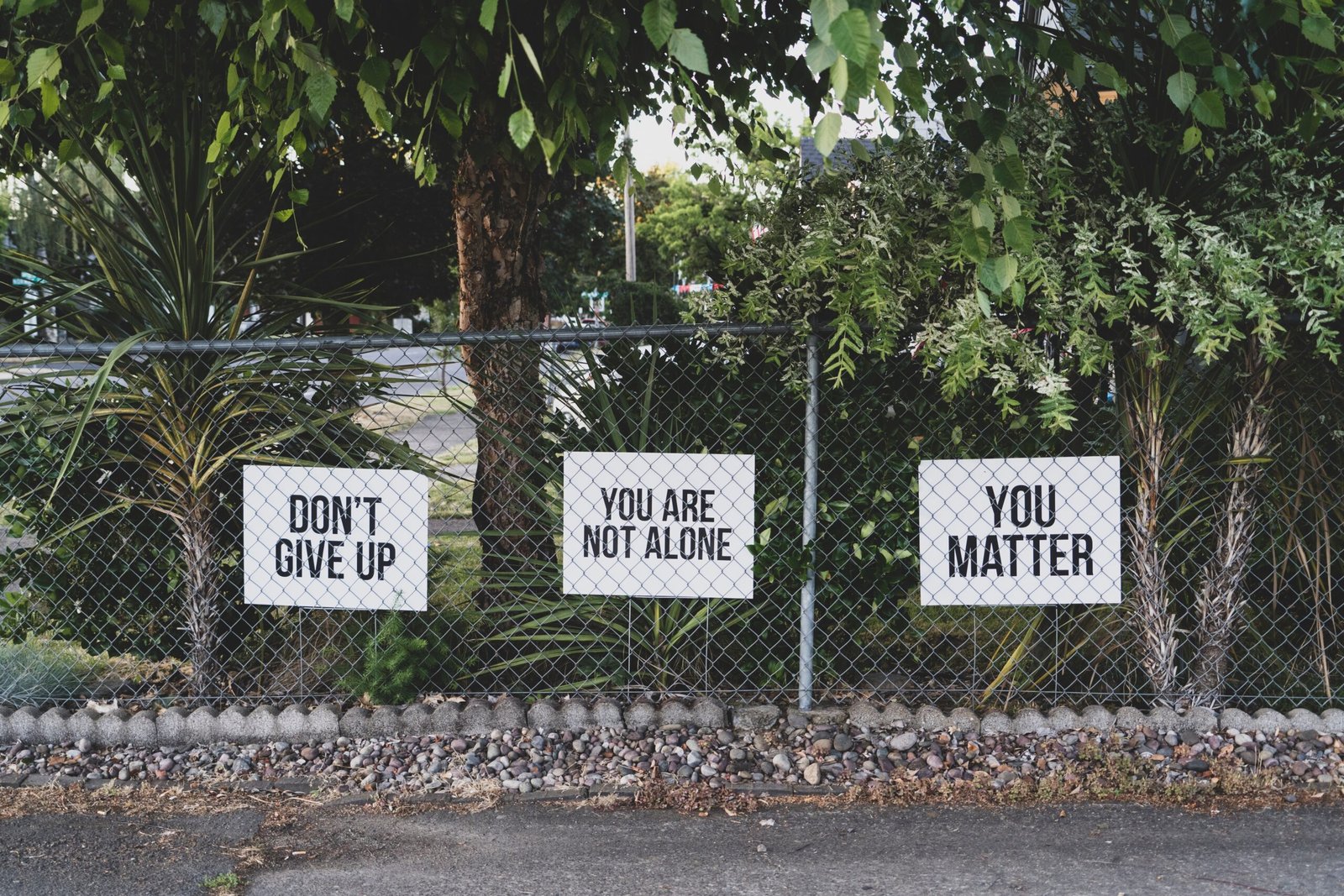
Understanding Anxiety Disorders: Causes, Symptoms, and Treatment Options
What is Anxiety?
Anxiety is a natural response to stress or danger. It is a feeling of fear or apprehension about what’s to come. While occasional anxiety is a normal part of life, for some people, it can become a chronic condition that significantly affects their daily lives.
Anxiety and Anxiety Disorders
Anxiety disorders are a group of mental health conditions characterized by excessive and persistent worry, fear, or unease. These disorders go beyond the normal feelings of nervousness or stress and can interfere with a person’s ability to function.
What are Anxiety Disorders?
Anxiety disorders are a category of mental health disorders that involve excessive and irrational fear or worry. They can manifest in various ways and have different triggers, but they all share the common feature of excessive anxiety that is difficult to control.
Types of Anxiety Disorders
There are several types of anxiety disorders, each with its own unique symptoms and triggers:
- Generalized Anxiety Disorder (GAD): characterized by excessive worry and anxiety about everyday events and situations.
- Panic Disorder: marked by recurring panic attacks, which are sudden and intense episodes of fear and physical discomfort.
- Social Anxiety Disorder: involves an intense fear of social situations and a constant worry about being judged or embarrassed.
- Specific Phobias: intense fear of specific objects, situations, or activities.
- Obsessive-Compulsive Disorder (OCD): characterized by intrusive thoughts (obsessions) and repetitive behaviors (compulsions).
- Post-Traumatic Stress Disorder (PTSD): develops after experiencing or witnessing a traumatic event and involves flashbacks, nightmares, and severe anxiety.
Causes of Anxiety Disorders
Anxiety disorders can have multiple causes, including:
- Genetic predisposition
- Brain chemistry and imbalances in neurotransmitters
- Environmental factors, such as trauma or chronic stress
- Personality factors, such as being prone to negative thinking or having low self-esteem
Risk Factors for Anxiety Disorders
While anxiety disorders can affect anyone, certain factors may increase the risk of developing these disorders:
- Family history of anxiety disorders or other mental health conditions
- History of physical or sexual abuse
- Chronic medical conditions, such as heart disease or diabetes
- Substance abuse
- Stressful life events, such as the loss of a loved one or financial difficulties
Symptoms of Anxiety Disorders
The symptoms of anxiety disorders can vary depending on the specific disorder, but common symptoms include:
- Excessive worry or fear
- Feeling restless or on edge
- Irritability
- Trouble concentrating
- Sleep disturbances
- Physical symptoms like rapid heartbeat, sweating, or trembling
Diagnosis of Anxiety Disorders
Diagnosing anxiety disorders involves a thorough evaluation by a mental health professional. The diagnosis is based on the individual’s symptoms, medical history, and a psychological assessment. It is essential to rule out any underlying medical conditions that may be causing or contributing to the anxiety symptoms.
Treatment Options for Anxiety Disorders
Anxiety disorders can be effectively treated, and there are various treatment options available:
- Therapy: Cognitive-behavioral therapy (CBT) is often the first-line treatment for anxiety disorders. It helps individuals identify and change negative thought patterns and behaviors that contribute to anxiety.
- Medication: Antidepressants, anti-anxiety medications, and beta-blockers may be prescribed to help manage anxiety symptoms. These medications are typically used in conjunction with therapy.
- Lifestyle changes: Engaging in regular exercise, practicing relaxation techniques, maintaining a healthy diet, and getting enough sleep can all help reduce anxiety.
- Self-help strategies: Learning stress management techniques, practicing mindfulness or meditation, and seeking support from loved ones or support groups can also be beneficial.
Self-Treatment for Anxiety Disorders
While self-treatment can be helpful for managing anxiety, it is essential to consult with a healthcare professional for an accurate diagnosis and to develop an appropriate treatment plan. Self-treatment strategies may include:
- Deep breathing exercises
- Progressive muscle relaxation
- Mindfulness or meditation
- Journaling or expressive writing
- Engaging in hobbies or activities that bring joy
- Limiting caffeine and alcohol consumption
- Getting regular exercise
- Establishing a consistent sleep routine
Remember, self-treatment should complement professional care and should not replace it. If you suspect you have an anxiety disorder, reach out to a mental health professional for guidance and support.
Anxiety disorders are common but treatable. With the right support and treatment, individuals can learn to manage their anxiety and lead fulfilling lives.
Learn More
Understanding Depression: Symptoms, Differences, and Treatment Options
Introduction
Depression is a common mental health disorder that affects millions of people worldwide. It is important to understand the symptoms, differences from sadness or grief, and the various ways it can manifest in different age groups and genders. This article will explore the assessment and treatment options available for depression.
Symptoms of Depression
Depression is characterized by persistent feelings of sadness, hopelessness, and a loss of interest or pleasure in activities. Other common symptoms include:
- Changes in appetite and weight
- Sleep disturbances
- Difficulty concentrating or making decisions
- Fatigue or loss of energy
- Feelings of worthlessness or excessive guilt
- Recurrent thoughts of death or suicide
Depression vs. Sadness or Grief/Bereavement
While it is normal to experience sadness or grief after a loss or disappointment, depression is different. Sadness and grief are temporary and typically improve over time, whereas depression is a persistent condition that requires professional intervention. If symptoms persist for more than two weeks and interfere with daily functioning, it may be a sign of depression.
Depression Symptoms in Children and Teens
Depression can affect individuals of all ages, including children and teenagers. In younger individuals, symptoms may manifest differently and can include:
- Irritability or anger
- Withdrawal from friends and family
- Changes in appetite and sleep patterns
- Difficulty concentrating or performing well in school
- Physical complaints such as headaches or stomachaches
If you suspect your child or teenager may be experiencing depression, it is important to seek professional help.
Depression Symptoms in Older Adults
Depression in older adults is often overlooked or misdiagnosed. Symptoms may be attributed to other health conditions or dismissed as a normal part of aging. Common symptoms in older adults include:
- Memory problems
- Unexplained physical ailments
- Withdrawal from social activities
- Feelings of hopelessness or worthlessness
- Increased use of alcohol or medication
It is crucial for healthcare providers and caregivers to be vigilant in identifying depression in older adults and ensuring they receive appropriate support.
Depression Symptoms in Women
Depression affects women at a higher rate than men. Hormonal changes during puberty, pregnancy, and menopause can contribute to the development of depression. Common symptoms in women include:
- Increased irritability or mood swings
- Feelings of guilt or worthlessness
- Changes in appetite and sleep patterns
- Loss of interest in activities
- Thoughts of self-harm or suicide
It is important for women to seek support and treatment if they experience these symptoms.
Depression Symptoms in Men
Depression in men is often underreported and can be masked by anger or irritability. Men may be less likely to seek help due to societal expectations of masculinity. Common symptoms in men include:
- Increased anger or aggression
- Loss of interest in work or hobbies
- Physical symptoms such as headaches or digestive problems
- Substance abuse
- Thoughts of self-harm or suicide
It is crucial to encourage men to seek help and provide them with a safe space to discuss their emotions.
Assessment of Depression
Assessing depression involves a comprehensive evaluation by a healthcare professional. This may include a physical examination, psychological assessments, and interviews to determine the severity and impact of symptoms. It is important to be honest and open during the assessment process to ensure an accurate diagnosis.
Treatment for Depression
Treatment for depression can vary depending on the individual and the severity of symptoms. Common treatment options include:
- Psychotherapy: Talk therapy with a trained therapist can help individuals explore their thoughts and emotions, develop coping strategies, and improve their overall well-being.
- Medication: Antidepressant medications may be prescribed to help regulate brain chemistry and alleviate symptoms. It is important to work closely with a healthcare provider to find the right medication and dosage.
- Lifestyle changes: Engaging in regular exercise, maintaining a healthy diet, getting enough sleep, and reducing stress can all have a positive impact on depression symptoms.
Therapies for Depression
In addition to traditional treatment options, there are alternative therapies that can complement and enhance the treatment of depression. These include:
- Mindfulness and meditation: Practicing mindfulness and meditation techniques can help individuals manage stress, improve self-awareness, and promote emotional well-being.
- Art therapy: Engaging in creative activities such as painting or drawing can provide an outlet for self-expression and emotional healing.
- Exercise therapy: Physical activity has been shown to release endorphins, improve mood, and reduce symptoms of depression.
Conclusion
Depression is a complex mental health disorder that can affect individuals of all ages and genders. Recognizing the symptoms and seeking appropriate treatment is crucial for managing and overcoming depression. With the right support and interventions, individuals can lead fulfilling and meaningful lives.
Learn More
The Importance of Mental Health in Children
Introduction
Mental health is a crucial aspect of overall well-being, and this holds true for individuals of all ages. However, it is especially important to pay attention to the mental health of children. Childhood is a critical period for cognitive, emotional, and social development, and any issues related to mental health can have a lasting impact on their future.
The Prevalence of Mental Health Issues Among Children
In recent years, there has been a growing recognition of mental health issues among children. According to the World Health Organization (WHO), approximately 10-20% of children and adolescents worldwide experience mental health disorders. These disorders can manifest in various forms, including anxiety, depression, attention-deficit/hyperactivity disorder (ADHD), and behavioral problems.
It is important to note that mental health issues in children are not solely a result of genetic factors. Environmental factors, such as family dynamics, school environment, and exposure to trauma or stress, can also significantly contribute to the development of mental health disorders.
The Impact of Mental Health on Children
Poor mental health can have a profound impact on a child’s life and overall well-being. It can affect their cognitive abilities, emotional regulation, social interactions, and academic performance. Children with mental health issues may struggle with concentration, problem-solving, and decision-making, leading to difficulties in school and other areas of life.
Moreover, untreated mental health problems in childhood can persist into adulthood and increase the risk of developing more severe mental health disorders later in life. Early intervention and support are crucial to prevent long-term negative consequences.
Signs and Symptoms of Mental Health Issues in Children
Recognizing the signs and symptoms of mental health issues in children is essential for early detection and intervention. Some common indicators include:
- Changes in behavior, such as irritability, aggression, or withdrawal
- Difficulty sleeping or experiencing nightmares
- Changes in appetite or weight
- Loss of interest in previously enjoyed activities
- Difficulty concentrating or declining academic performance
- Frequent physical complaints, such as headaches or stomachaches
If you notice any of these signs persisting for an extended period, it is crucial to seek professional help from a mental health provider who specializes in working with children.
Promoting Positive Mental Health in Children
There are several strategies that parents, caregivers, and educators can implement to promote positive mental health in children:
- Encourage open communication and create a safe space for children to express their feelings and concerns.
- Teach and model healthy coping strategies, such as deep breathing exercises, mindfulness, and engaging in physical activity.
- Establish consistent routines and provide a structured environment, as this can help children feel secure and reduce anxiety.
- Promote healthy lifestyle habits, including regular exercise, nutritious meals, and adequate sleep.
- Teach problem-solving and resilience skills to help children navigate challenges and setbacks.
- Encourage social connections and foster positive relationships with peers and family members.
The Role of Schools and Communities
Schools and communities play a vital role in supporting children’s mental health. It is essential for schools to have comprehensive mental health programs in place, including access to school counselors or psychologists. Educators should also receive training on recognizing and addressing mental health issues in the classroom.
Communities can contribute by reducing the stigma surrounding mental health and providing resources and support for families. Collaboration between schools, healthcare providers, and community organizations can help create a holistic support system for children.
Conclusion
Investing in the mental health of children is crucial for their overall well-being and future success. By recognizing the signs, promoting positive mental health, and providing early intervention, we can help children develop the resilience and coping skills necessary to navigate life’s challenges.
Remember, mental health matters, and every child deserves the opportunity to thrive.
Learn More
Suicide Prevention: Understanding and Taking Action
When it comes to suicide prevention, knowledge and action are key aspects. Suicide is a serious public health issue that affects individuals, families, and communities worldwide. It is important to understand the signs and risk factors associated with suicide, as well as the steps we can take to prevent it.
One of the most important things we can do is to be aware of the warning signs of suicide. These can include talking about wanting to die or feeling hopeless, withdrawing from friends and family, giving away belongings, or displaying sudden changes in mood or behavior. If you notice any of these signs in yourself or someone you know, it is crucial to take them seriously and seek help.
Preventing suicide requires a multi-faceted approach. It involves creating a supportive environment, promoting mental health and well-being, and providing access to effective treatment and support services. It is important to reach out to those who may be struggling and offer them a listening ear, empathy, and resources for help.
If you or someone you know is in crisis, it is important to seek immediate help. There are several helpline numbers and crisis intervention services available that can provide support and guidance. Remember, you are not alone, and there is help available.
- Take Water. Just try to recollect the beautiful moments in your life.
- Just bring the image of those who truly love you in your visualization. Think about them.
- Think about your good friends in large.
- Talk to your doctor or with anyone who is nearby. Share your feelings.
- Think about your Dreams and desires for a second.
- Listen to the videos given at the end of this write up.
- Please get in touch with anyone of these numbers which is nearer to you or helpful to you.
| LOCATION | ORGANISATION | NUMBER | HOURS OF OPERATION |
| ALL-INDIA | GOVT MH Rehabilitation HELPLINE ‘KIRAN’ | 1800-5990019 | 24/7 |
| ALL-INDIA | VANDREVALA FOUNDATION | 9999 666 555 | 24 by 7/ |
| E: help@vandrevalafoundation.com if you don’t get through and expect a call-back | |||
| BANGALORE | SAHAI | 080-25497777 | Monday – Saturday 10 AM to 5:30PM |
| CHENNAI | SNEHA | 044 2464 0050 | Daily: 8 AM to 10 PM |
| E: help@snehaindia.org | |||
| DELHI | SANJIVINI SOCIETY FOR MENTAL HEALTH | 01140769002, 01141092787 | Daily: 10 AM to 4 PM |
| 01124311918, 01124318883, 01143001456 | |||
| GANGTOK | SIKKIM HELPLINE NUMBER | 1800-3453225 | 24/7 |
| HYDERABAD | ONE LIFE | 78930 78930 | 24/7 |
| KOLKATA | |||
| LIFELINE FOUNDATION | +91 9088030303, 03340447437 | Daily 10 AM to 10 PM / Caters to pan-India calls | |
| E: contact@lifelinefoundation.in | |||
| Site: www.lifelinefoundation.in | |||
| MUMBAI | |||
| SAMARITANS | 84229 84528, 84229 84529, 84229 84530 | Daily 5 PM to 8 PM | |
| E: talk2samaritans@gmail.com |

